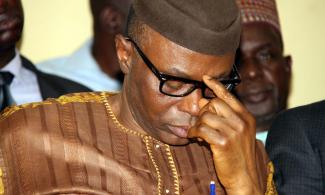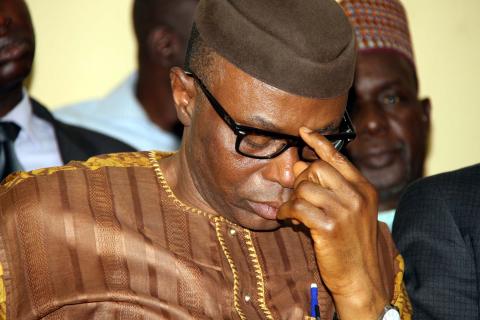
“All private schools, under the auspices of National Association of Proprietors’ of Private Schools (NAPPS), Ondo State chapter, could no longer tolerate the heavy taxation. We made several pleas the state governor, Dr. Olusegun Mimiko, but he did nothing, hence our resolve to embark on strike to register our protest,” another protest, who also asked for anonymity, stated.

Private schools in Ondo State today closed for one day to protest what one of their representatives described as “the imposition of unreasonably high taxation” by Governor Olusegun Mimiko’s administration.
The proprietor said owners of private schools in the state unanimously agreed on the symbolic protest because “we have been living under a heavy tax imposed on our schools by the State Ministry of Education.”
“All private schools, under the auspices of National Association of Proprietors’ of Private Schools (NAPPS), Ondo State chapter, could no longer tolerate the heavy taxation. We made several pleas the state governor, Dr. Olusegun Mimiko, but he did nothing, hence our resolve to embark on strike to register our protest,” another protest, who also asked for anonymity, stated.
The two proprietors disclosed that a meeting between members of the association and the Commissioner for Education, Mr. Jide Adejuyigbe, has been scheduled for 10 a.m. on March 12, adding that the outcome would determine the schools’ next action.
One female proprietor said proprietors were willing to shut down all private schools in the state to show displeasure with “the untold hardship we are suffering under the Mimiko government.” “Already a short letter has been dispatched to parents of pupils in all private schools in the state to allow their children to stay at home as there will be no schools for them today,” she added.
The proprietor revealed that heavy taxation and other hostile policies by the state had forced many schools to permanently close down.
“These people in government enjoyed free education during their days. But they have refused to pay civil servants’ salaries. Everyone is silently suffering, no one is smiling, and there is no money in the town. How much are our schools even generating yearly to warrant the heavy taxes they want us to pay?” one proprietor said.
Another source stated that, in addition to teachers’ salaries, the proprietors also pay for such workers as clerks, administrators and cleaners. “Now, tell me what is left to pay an exorbitant tax. It’s high time we fought this and ensured that it stopped. Dr. Mimiko should stop using tax to kill the people of Ondo State,” he said.
Some proprietors disclosed that the government demanded that they pay an average of N3 million per year. They said that, in addition to the levy imposed by the State Ministry of Education, the various local governments also collected their own fees from the schools.
Our correspondent discovered that schools which failed to pay the heavy state tax inevitably had their license revoked, with a task force set up by the state ordering pupils in such schools to stay away.
A break down of the state tax showed that the State Ministry of Education collects a renewal fee of N120,000 for private secondary schools while private elementary schools paid N80,000. Schools pay between N50,000 and N120,000 for tenancy fee while local government councils charge N30,000. Private schools pay more than N50,000 to the Ministry of Education for Junior School Certificate Examinations (JSCE) and N50,000 for primary leaving certificate. The state’s Board of Internal Revenue charges the schools between N20,000 and N15,000 for advert and signage. The Ministry of Education charges each private school N50,000 as accreditation fee before allowing their students to take the West Africa Examination Council (WAEC) exams.
Mr. Femi Olaposi, a parent of a private school student, described the taxation as “robbing the intellectual sector of the state,” adding that schools should not be taxed as if they were primarily profit-making enterprises.